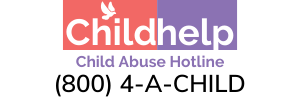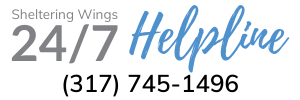“The kids have never seen him hit me.” “My girls don’t know how their mother treats me.” “The children are teenagers. They understand what’s what.”
Victims of intimate partner violence, their relatives and community members who think this way are fooling themselves. All children in a violent home experience trauma from domestic abuse. That’s why we begin supporting young people as soon as they walk through our doors: Intervention at this stage is critical.
According to the National Child Traumatic Stress Network, a child’s immediate reactions to domestic violence can be:
- Generalized anxiety and/or increased separation anxiety
- Sleeplessness, nightmares
- Difficulty concentrating
- High activity levels
- Increased aggression
- Intense worry about their own or a parent’s safety
The long-term effects can include:
- Physical health problems
- Behavioral problems, learning disruptions
- Mental and emotional difficulties into adulthood
Adverse childhood experiences, known in the child psychology community as ACEs, have a high probability of causing a young person to struggle for the rest of their lives. They may turn to drugs or alcohol to soothe feelings they never learned to manage. They may become violent as teens or adults.
Everyone pays a price: themselves, their family, their community.
On top of the trauma at home, imagine being a child who is whisked away without warning from their bedroom, their toys, their friends, their school. Suddenly, they are surrounded by strangers in a strange place.
They’re safe, yes. But they don’t know yet that it’s a better life.
Sheltering Wings practices age-specific therapy, education and play techniques to help young people cope with feelings they cannot possibly understand alone. To learn more, see Children and Youth Services.
Responsibility to report
If you are aware of a situation in which a child is being abused, you have a legal responsibility to report it to the authorities by calling 911 or the National Child Abuse Hotline (listed on this page). And, if you know of a situation in which a parent is being abused, the best way to protect children in the home is to make sure the parent receives help.

 If you are in immediate danger, call 911 right now.
If you are in immediate danger, call 911 right now. The Childhelp National Child Abuse Hotline offers crisis intervention, information and referrals to thousands of emergency, social service and support resources. You can visit their
The Childhelp National Child Abuse Hotline offers crisis intervention, information and referrals to thousands of emergency, social service and support resources. You can visit their  If you need help or more information – even if you don’t need emergency shelter – call us.
If you need help or more information – even if you don’t need emergency shelter – call us.